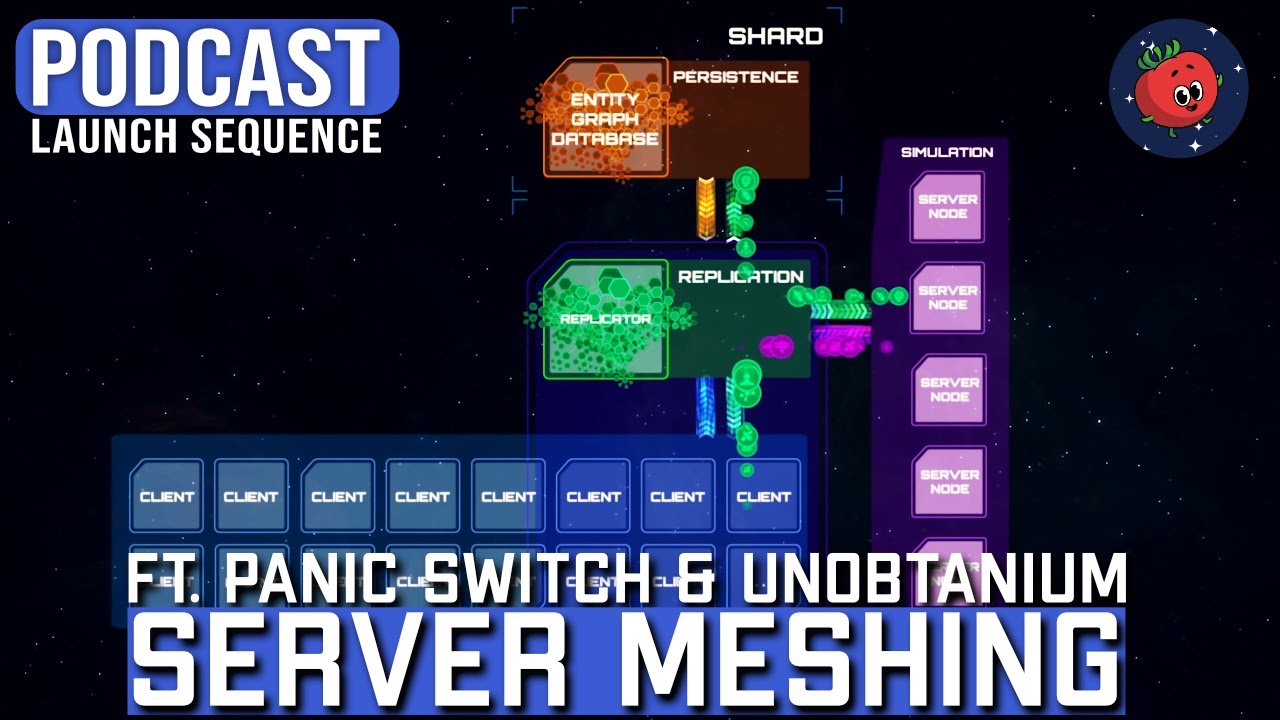On the Launch Sequence podcast, guests PanicSwitch and Unobtanium discuss the complexities and development of server meshing technology in Star Citizen, its challenges, and implications for game performance. They also address the game’s recent update with Persistent Entity Streaming and the decision to prioritize gameplay systems over the quantum economy, expressing cautious optimism about future enhancements.
The transcript is from the Launch Sequence podcast episode 125, where the host and guests discuss server meshing technology within the context of Star Citizen, a space simulation game by Cloud Imperium Games. The discussion focuses on server meshing’s importance, its impact on the game’s backend systems, and broader implications for the gaming industry.
Unobtanium, a guest and software developer, shares his insights on server meshing. He has been closely following Star Citizen’s development, particularly interested in dynamic server meshing, and has created an interactive roadmap detailing its progress. He notes that server meshing has been a long-term goal for Star Citizen, with early plans shifting from traditional instancing to a dynamic server meshing approach around 2015. The technology is complex and involves multiple areas of computer science.
PanicSwitch, another guest with experience as a DevOps and site reliability engineer, adds context to the conversation by discussing high-performance computing and cloud services like AWS, which is used by Cloud Imperium Games. He emphasizes that server meshing is a challenging problem to solve but isn’t revolutionary outside of gaming, drawing comparisons with the financial industry. He underscores the significant computational demands in a first-person game like Star Citizen, especially when actions need to be accurately replicated across multiple client machines.
The podcast touches on the Persistent Entity Streaming (PES) technology unveiled in Star Citizen update 3.18, which replaced the previous iCache system. PES allows for more efficient and dynamic data management at the expense of initial stability issues upon launch. The host and guests discuss how PES is foundational for server meshing and will lead to improved server performance despite short-term problems introduced during its implementation.
Towards the end, the discussion pivots to the quantum economy, which was absent at CitizenCon, leading to speculation among players. PanicSwitch weighs in, believing pausing work on the quantum economy is a mature decision, allowing Cloud Imperium Games to focus on developing gameplay systems first. Unobtanium expresses interest in the potential of AI-driven NPCs for gameplay like bounty hunting. Both guests seem cautiously optimistic about progress towards dynamic server meshing and its eventual impact on Star Citizen’s development.
